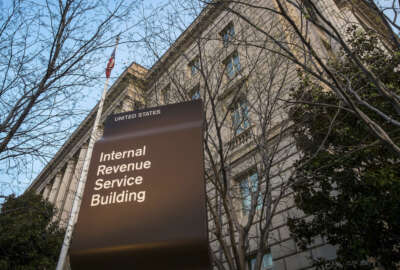
IG for tax administration: don’t be a victim
The Treasury Inspector General for Tax Administration issued a warning against becoming one of thousands of victims fooled by a phone scam that's robbed $23 million...
In light of the 2014 tax filing extension deadline, the Treasury Inspector General for Tax Administration issued a warning against a telephone scam that has robbed $23 million out of taxpayer pockets.
In a press release issued Oct. 15, just hours before the 11:59 p.m. filing deadline, J. Russell George, the Treasury inspector general for tax administration, urged people to “not become a victim” of scammers who make threatening phone calls demanding a person settle up on outstanding taxes.
“This scam has proven to be the largest of its kind that we have ever seen,” George said. “The callers are aggressive, they are relentless and they are ruthless. Once they have your attention, they will say anything to con you out of your hard-earned cash.”
According to the press release, since October 2013 TIGTA has received roughly 736,000 reports of contact and learned about 4,550 victims who have been scammed by the callers.
Victims are called by someone claiming to be from the IRS, demanding they pay unpaid taxes, or risk arrest or even deportation.
The IRS does contact people who are behind on paying their taxes, but it does not call people.
The IRS contacts people by mail, and the agency will not ask for a payment using a prepaid debit card or wire transfer, nor will it ask for a credit card number over the phone.
George said progress has been made in investigating the scam — a Pennsylvania man linked to the scam was sentenced this summer to 14 years behind bars — but he said the issue was “still a matter of high investigative priority.”
“The increasing number of people receiving these unsolicited calls from individuals who fraudulently claim to represent the IRS is alarming,” George said. “Even after the tax filing season has ended, it is critical that all taxpayers continue to be wary of unsolicited telephone calls from individuals claiming to be IRS employees.”
The press release listed that the callers often:
- Use an automated robocall machine.
- Use common names and fake IRS badge numbers.
- May know the last four digits of a person’s Social Security Number.
- Make caller ID information appear as though the IRS is calling.
- Send bogus IRS emails to support their story.
- Call a second or third time claiming to be police or a department of motor vehicles, with a caller ID that supports their claim.
For those who receive a scam call or phishing email, the press release directs them to:
- Fill out the “IRS Impersonation scam” form on TIGTA’s website, www.treasury.gov/tigta, or call TIGTA at 800-366-4484.
- If they do not owe taxes, file a complaint with the Federal Trade Commission at www.FTC.gov. Add “IRS Telephone Scam” to the comments in the complaint.
- You should forward scam emails to phishing@irs.gov. Do not open any attachments or click on any links in those emails.
- Taxpayers should be aware that there are other unrelated scams (such as a lottery sweepstakes winner) and solicitations (such as debt relief) that fraudulently claim to be from the IRS.
- For more information about the tax scams visit the real IRS website www.irs.gov
Copyright © 2025 Federal News Network. All rights reserved. This website is not intended for users located within the European Economic Area.



